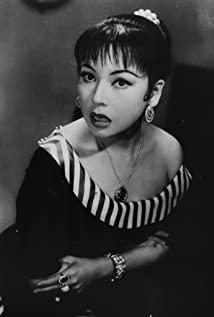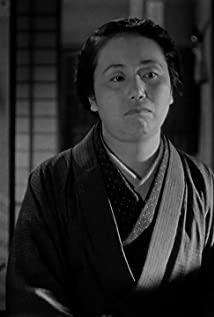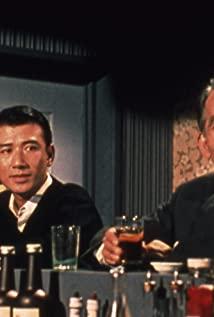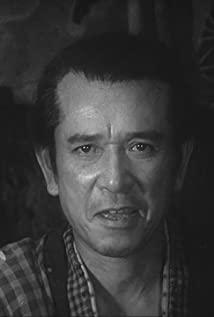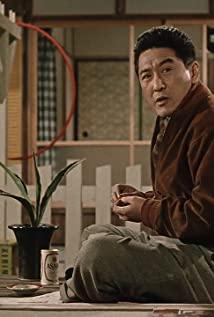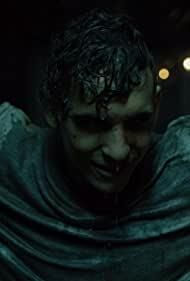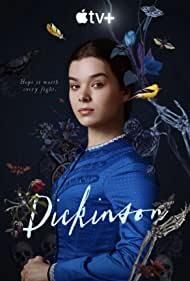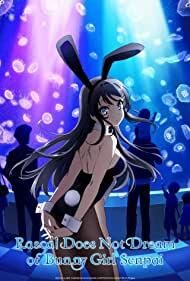-
By Eliza 2022-12-07 06:38:33
In this film, Ozu has his usual style, and he likes the drama within everyday life. The common plots of death, marriage, love, blood recognition, etc. in the story are typical dramatic events. The difference lies in Ozu's handling. He weakens the role of the dramatic plot in the overall structure and focuses more on the process. Antonioni is also accustomed to the character changes during the shooting process. Different from classic dramas, more progress is shown, which can reflect the...
-
By Michelle 2022-11-16 02:20:40
In his tribute to Ozu, "Tokyo Painting" (also known as "Searching for Ozu"), Wim Wenders begins with this sentence: "If there is anything sacred in the era we live in , if there are any hidden treasures in the movie, then to me, the works of Yasujiro Ozu undoubtedly belong to this category."
I agree with this, and even think it is indeed what I think and read in my heart. ; But after careful consideration, such an opening is a bit unclear, so that people start to resist. After all, no... -
By Duane 2022-10-29 03:10:58
1. The 1934 silent film only saw the first few characters appear, and it felt good, it was right for the story. In particular, the head of the Huadan, who did not know who played it, was very windy and Jianghu, and the Xiaojian minibus looked like Ruan Lingyu. In 1959, Fumiko Wakao was very upright and did not have the feeling of such a brutish little beast in the 1930s.
2. If you just look at the story in 1959, you don't understand that Japanese women are still so submissive after... -
By Mason 2022-10-17 01:13:36
The second time I watched a movie in the United States, although it was a free school movie, the movie was played by a local who studied French literature. I always pick some more humanistic movies to show.
Floating grass, restless feeling. People outside may be more aware of it. I have been studying outside since college, and I remember watching a lot of movies in high school. At that time, I liked watching Japanese movies very much. I have seen some of the so-called master... -
By Ulices 2022-10-15 23:39:46
The bright red after this refresh
The second film by Yasujiro Ozu I watched.
The color of the picture is gorgeous, with a lot of gorgeous red. With the cheerful and lively music, it shows a variety of pain and joy.
The expression of the lens is authentic. It is full of Japanese markets and civilian life. The entrance halls, corridors and stairs of Japanese-style houses have a strong sense of home. The taverns and restaurants where people came and went, and the troupe that staged Japanese Noh in "Floating...
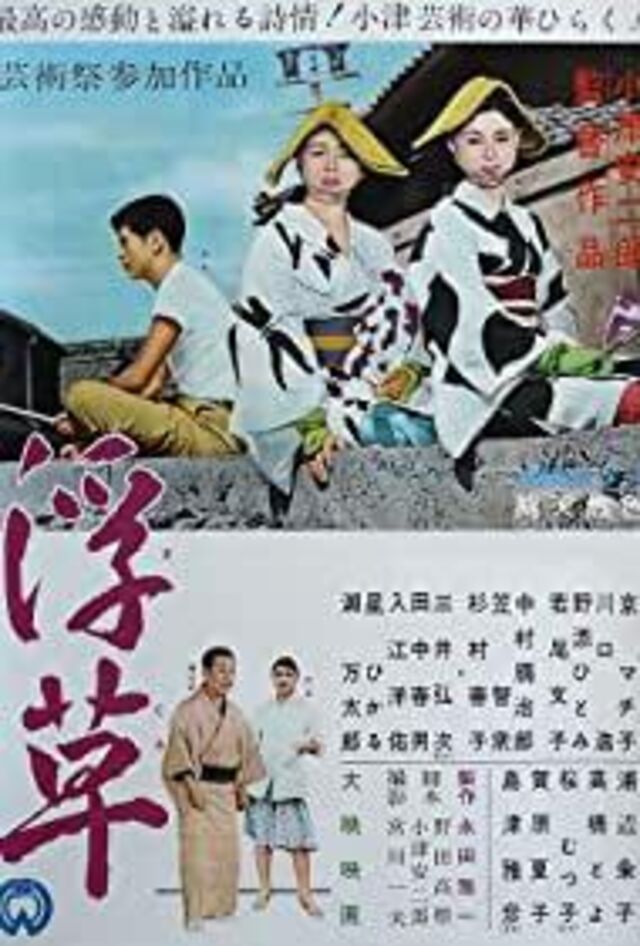
Floating Weeds
Top cast
Details
- Release date November 24, 1970
- Filming locations Kii Peninsula, Honshu, Japan
- Production companies Daiei Studios
Movie reviews
( 17 )
Add reviews
User comments
( 25 )
Add comments
-
By Zack 2023-09-25 03:23:53
http://www.tudou.com/playlist/p/l9049949i47441138.html very beautiful...
-
By Reid 2023-09-18 05:34:11
The shots are clean and simple, the relationship between the characters is simple and clear, and the empty shots make the narrative rhythm more calm, but under the calm and soothing shots of the film, it is full of sadness and helplessness. My father runs a small troupe, and relies on traveling to and from different towns to perform performances. He is unable to stay with his son and his lover, and enjoy a normal family life. Including not hesitate to hide his true identity, but in the end he...
-
By Bailee 2023-07-12 14:41:17
The reenactment of the sorted sense of concentrated life is both artificial and typical. Compared with the so-called drama related to life in the world, there will generally be a so-called "before" that leads me to the beginning of the plot. The inevitable ending in the novel, or the end point that was determined at birth, everything in front of me is a landscape that has been determined, fascinating, but has nothing to do with people, perhaps only the core emotion in the core of modernity,...
-
By Genoveva 2023-07-06 16:50:21
Three and a half. Compared with a series of feminist works about marrying a woman or a family, this work is more inclined to the expression of men. I have always joked that I protect a boy well, and the female actor and his love are beaten badly. Women here have a kind of destiny no matter what their status is, they are not as firm as most of Ozu's works, although they have also made a firm expression in this film, but everything depends on the attitude of the male at the center. All of them,...
-
By Dorothy 2023-06-30 16:44:38
I feel that the color audio version is better than the black and white silent film version, the red and orange colors are powerful, and the color design is excellent; the presence of children is weakened, which adds to the living conditions of other members, and the characters in the group show have their own personalities. The handling of scolding and acknowledging relatives is very emotional in the sequence of Ozu's works; the echo of the two lines of father and son is a lonely story about...
Movie plot
Behind the scenes gags
Evaluation action
-
Komajuro Arashi: This is his daughter, who was just a kid then.
[Kayo bows]
Theatre Owner: Grown up into a fine young woman. She used to be a just like a Chinese nut.
-
Komajuro Arashi: What are your talking about wise guy? My audience likes my performance whether it's hammy or not.
-
Komajuro Arashi: You can't help an empty house, when it's empty.








